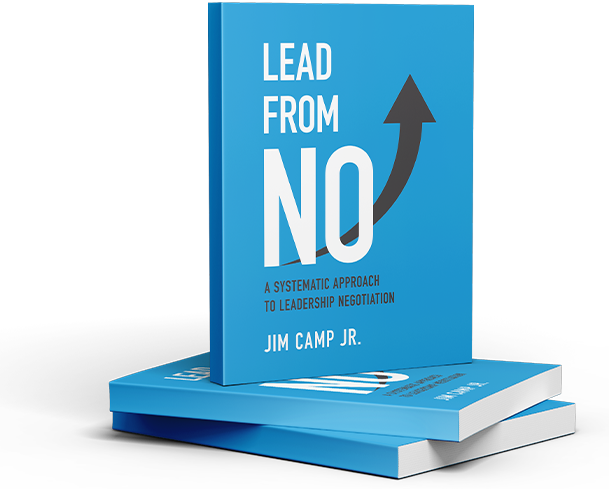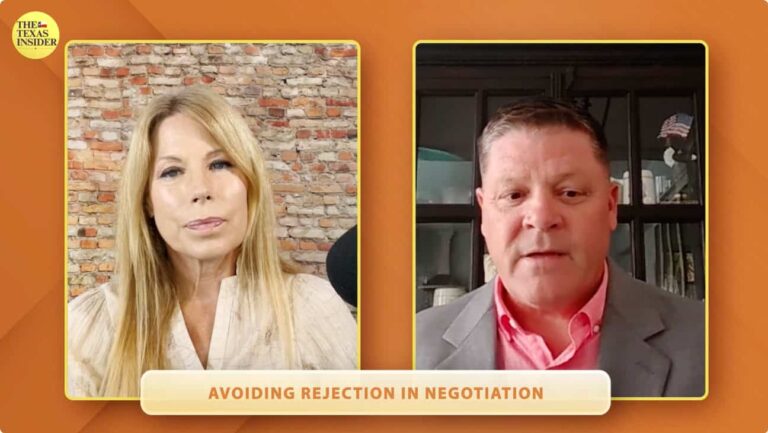Very often, especially in times of change, a respected opponent will try to use guilt to influence you to see things their way and agree to their terms. Your guilt may cause you to make concessions in a negotiation that you would not ordinarily consider.
In the Camp System, we refer to anyone you are negotiating with as your “respected opponent” or “respected adversary.” The words “opponent” or “adversary” mean that they have a problem you may be able to solve, or you have a problem that they may be able to solve. Solutions to these problems may be within your reach if you can agree on how to work together to your mutual benefit, with each party having the right to veto.
Any agreement is nothing more than a collection of decisions that you and your opponent made of your own free will. These decisions are the building blocks that bridge the gap between the opponent’s problems and the solution.
Why Guilt Hurts Your Negotiation
When the respected opponent tries to make you feel guilty, this works because:
1. There’s a good chance that you need the sale, order, promotion, etc. You think you need something, which could be true or not. Your boss may know that your child is in college, your partner isn’t working, or it’s your third job in two years. Your opponent’s words trigger guilt in yourself, which stems from things inside and outside of your workplace. (This guilt comes from perceived neediness.)
2. You don’t want to hurt your opponent’s feelings, feel you are taking advantage of them, or put them in a bad position. You compromise because you “assume” you know what they want, or the consequences. (This guilt arises because of your false assumptions – but you don’t know what someone else is thinking.)
3. You don’t want your opponent to talk about you or have other people think you are a bad person. (This guilt comes from thinking you can control other’s behavior, when in fact, you can’t.)
4. You might feel guilty because you agreed to do something that you no longer want to do. It could be an informal agreement between team members, like a deadline, or a written agreement or contract. You have internal pressure to follow through. Agreements are long term, so don’t be afraid to reopen if new information is presented. Don’t stick with a bad decision or non-decision. (This guilt stems from a fear of exercising your right to veto. This shows up as your fear of changing a past decision.)
Today’s decision may not be good tomorrow, especially in a changing environment.
Keeping It Professional
The respected opponent may also set up guilt in your mind by sharing personal things about themselves. Good negotiators limit sharing their personal information with the opponent because they conduct the negotiation in the world of the respected opponent. (Your opponent is living in their world, so stay there with them.)
You want to be seen as an efficient and effective professional, not a friend. Of course, you should always show compassion, be kind and respectful, and make them feel “okay.” One way to look at friendship is to ask yourself: If the business relationship ended, would you see that person again?
When your respected opponent resorts to guilt in a negotiation, they are trying to put you in a corner, and take away your right to veto. If you have internal guilt, you may be stuck in a corner from thoughts within your head.
We have a lot of experience and success with this and can help you get out of that corner.
How To Get Out of the Corner
CASE STUDY: An upstream supplier tells you that they are changing the product they sell to you, replacing it with another. You’ve already paid for the product that you’d be receiving.
You find out that the supplier shared the story of the potential switch with other people months prior, and not you, meanwhile taking your money.
During this time, the supplier has disclosed to you information about a personal problem in their family. You balance the opponent’s lack of sharing information with you, selectively sharing with others, and the demands of the personal problem on this person.
The angel in you may assume that the personal problem threw the supplier off and may have disrupted the supplier’s discussions with you. The devil in you thinks that this is bait and switch. Should you continue with this supplier or not?
Ending Guilt in a Negotiation
We have a framework that helps people deal with guilt in negotiation, which is a symptom of underlying beliefs.
The first belief to consider is that negotiation is not win-win or even win-lose. Negotiation is the effort expended by two or more parties to reach agreement, with all parties having the right to veto at any time.
When you offer your respected opponent this right to veto, you absolve your responsibility for any decisions that they make. You are not responsible for saving them from their decisions or any guilt that you may feel because of their choices. Of course, when you recognize an opponent’s poor decision and feel that it may compromise the durability of any agreement, you should exercise your right to veto. You do this because you are protecting the longer-term deal, which benefits you and the other parties, not because you are saving them.
The second belief is that all decisions made by the other party must be made of their own free will and not through coercion or manipulation.
When you embrace this concept, you realize that you must understand their point of view and how their decisions affect them. When you seek to “be 100% in their world and to their benefit,” you get a good understanding of what is and what is not important to them.
You must be able and willing to give your respected opponent what is important to them, as long as it meets your long and short term objectives. You should not ask for things that are not as important to you, and avoid unnecessarily giving your opponent things that are valuable to you.
If you can accomplish these things, you have the makings of a guilt-free negotiated solution.







